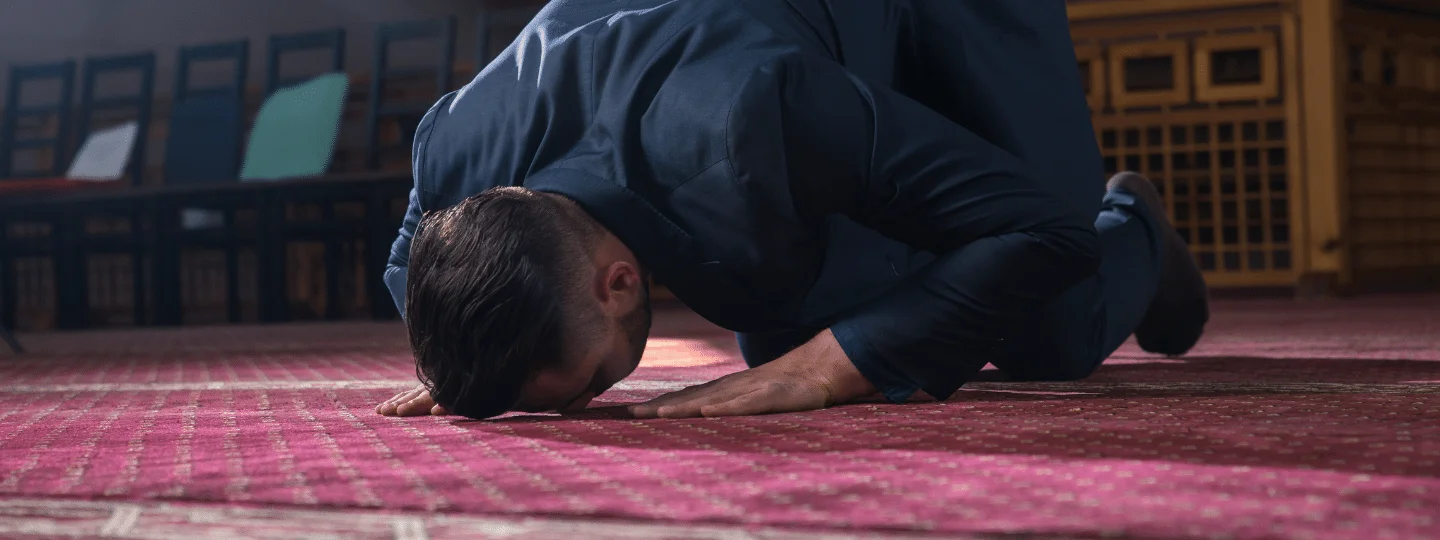Quran
Hadith
Islamic Text
Yes, the Hadith about Tasbe Namaz (Salatu al-Tasbeeh) is strong. Although the individual narrations may be weak, when brought together they strengthen one another to the level of Hasan Lighayrihi.
عَنِ ابْنِ عَبَّاسٍ، أَنَّ رَسُولَ اللَّهِ صَلَّى اللهُ عَلَيْهِ وَسَلَّمَ قَالَ لِلْعَبَّاسِ بْنِ عَبْدِ الْمُطَّلِبِ: يَا عَبَّاسُ، يَا عَمَّاهُ، أَلَا أُعْطِيكَ، أَلَا أَمْنَحُكَ، أَلَا أَحْبُوكَ، أَلَا أَفْعَلُ بِكَ عَشْرَ خِصَالٍ، إِذَا أَنْتَ فَعَلْتَ ذَلِكَ غَفَرَ اللَّهُ لَكَ ذَنْبَكَ أَوَّلَهُ وَآخِرَهُ، قَدِيمَهُ وَحَدِيثَهُ، خَطَأَهُ وَعَمْدَهُ، صَغِيرَهُ وَكَبِيرَهُ، سِرَّهُ وَعَلَانِيَتَهُ، عَشْرَ خِصَالٍ: أَنْ تُصَلِّيَ أَرْبَعَ رَكَعَاتٍ تَقْرَأُ فِي كُلِّ رَكْعَةٍ فَاتِحَةَ الْكِتَابِ وَسُورَةً، فَإِذَا فَرَغْتَ مِنَ الْقِرَاءَةِ فِي أَوَّلِ رَكْعَةٍ وَأَنْتَ قَائِمٌ، قُلْتَ: سُبْحَانَ اللَّهِ، وَالْحَمْدُ لِلَّهِ، وَلَا إِلَهَ إِلَّا اللَّهُ، وَاللَّهُ أَكْبَرُ، خَمْسَ عَشْرَةَ مَرَّةً، ثُمَّ تَرْكَعُ، فَتَقُولُهَا وَأَنْتَ رَاكِعٌ عَشْرًا، ثُمَّ تَرْفَعُ رَأْسَكَ مِنَ الرُّكُوعِ، فَتَقُولُهَا عَشْرًا، ثُمَّ تَهْوِي سَاجِدًا، فَتَقُولُهَا وَأَنْتَ سَاجِدٌ عَشْرًا، ثُمَّ تَرْفَعُ رَأْسَكَ مِنَ السُّجُودِ فَتَقُولُهَا عَشْرًا، ثُمَّ تَسْجُدُ، فَتَقُولُهَا عَشْرًا، ثُمَّ تَرْفَعُ رَأْسَكَ، فَتَقُولُهَا عَشْرًا، فَذَلِكَ خَمْسٌ وَسَبْعُونَ، فِي كُلِّ رَكْعَةٍ تَفْعَلُ ذَلِكَ فِي أَرْبَعِ رَكَعَاتٍ، إِنِ اسْتَطَعْتَ أَنْ تُصَلِّيَهَا فِي كُلِّ يَوْمٍ مَرَّةً فَافْعَلْ، فَإِنْ لَمْ تَفْعَلْ فَفِي كُلِّ جُمُعَةٍ مَرَّةً، فَإِنْ لَمْ تَفْعَلْ فَفِي كُلِّ شَهْرٍ مَرَّةً، فَإِنْ لَمْ تَفْعَلْ فَفِي كُلِّ سَنَةٍ مَرَّةً، فَإِنْ لَمْ تَفْعَلْ، فَفِي عُمُرِكَ مَرَّةً
Ibn Abbas (May Allah Most High be pleased with him) narrated that the Messenger of Allah ﷺ said to al-Abbas Ibn Abdul Muttalib (May Allah Most High be pleased with him), ‘O Abbas, O my uncle, should I not give you, should I not confer to you, should I not gift to you, should I not produce for you ten things? If you act upon them, Allah (Most High) will forgive you your sin, the first of it and the last of it, the old of it and the new, the involuntary of it and the voluntary, the small of it and the great, the secret of it and the open.
These are the ten things: that you should pray four Rak’ahs, reciting in each one Fatihah al-Kitab and a Surah. When you finish the recitation of the first Rak’ah you should say fifteen times while standing: “Transcendent is Allah, Praise be to Allah, There is no god but Allah, Allah is the greatest “. Then you bow and say it ten times whilst bowing. Then you raise your head after bowing and say it ten times. Then you prostrate and say it ten times whilst prostrating. Then you raise your head after prostration and say it ten times. Then you prostrate and say it ten times. Then you raise your head after prostrating and say it ten times.
That is seventy-five in every Rak’ah. You do that in four Rak’ahs. If you are able to perform it once daily, then do so. If you do not, then once weekly. If you do not, then once a month. If you do not, then once a year. If you do not, then once in your lifetime.’ (Abu Dawood 1297).
This Hadith has also been narrated in Ibn Maja (1387), Sahih Ibn Khuzaymah (1216), Tirmidhi (482) and others. However, there is a great deal of difference amongst the scholars of Hadith regarding its authenticity. Imam al-Showkani listed many leading Hadith scholars who considered it to be sound:
وَمِمَّنْ صَحَّحَ هَذَا الْحَدِيثَ أَوْ حَسَّنَهُ: ابْنُ مَنْدَهْ وَالآجُرِّيُّ وَالْخَطِيبُ وَأَبُو سَعْدٍ السَّمْعَانِيُّ وَأَبُو مُوسَى الْمَدِينِيُّ وَأَبُو الْحَسَنِ بْنُ الْمُفَضَّلِ وَالْمُنْذِرِيُّ وَابْنُ الصَّلاحِ وَالنَّوَوِيُّ وَالسُّبْكِيُّ وَآخَرُونَ. (الفوائد المجموعة في الأحاديث الموضوعة)
And amongst those who considered the Hadith to be Sahih are; Ibn Manda, al-Aajuri, al-Khateeb, Abu Sa’d al-Sam’aani, Abu Musa al-Madini, Abu al-Hasan bin al-Mufadal, al-Mundhari, Ibn Salah, al-Nawawi, al-Subki and others. (Imam al-Showkani, al-Fawaid al-Majmo’ah).
Amongst the scholars that may have disagreed with the Hadith being sound is Imam Ibn Hajr al-Asqalani:
وَالْحَقُّ أَنَّ طُرُقَهُ كُلَّهَا ضَعِيفَةٌ. وَإِنْ كَانَ حَدِيثُ ابْنِ عَبَّاسٍ يَقْرُبُ مِنْ شَرْطِ الْحَسَنِ؛ إلَّا أَنَّهُ شَاذٌّ لِشِدَّةِ الْفَرْدِيَّةِ فِيهِ، وَعَدَمِ الْمُتَابِعِ وَالشَّاهِدِ مِنْ وَجْهٍ مُعْتَبَرٍ، وَمُخَالَفَةِ هَيْئَتِهَا لِهَيْئَةِ بَاقِي الصَّلَوَاتِ. (التلخيص الحبير في تخريج أحاديث الرافعي الكبير)
The reality is that all of the chains for it (Salatu al-Tasbeeh) are weak. Even if the Hadith of Ibn Abbas (May Allah Most High be pleased with him) is close to the criteria of a Hasan narration, it is Shadh (anomalous). This is due to the fact that it is singularly narrated, and it has no authoritative narration backing it nor supporting it. And it (Salatu al-Tasbeeh) contradicts the form of other prayers. (Imam Ibn Hajr al-Asqalani, Talkhees al-Habeer).
Despite the above Nass (text) from Imam Ibn Hajr, he has mentioned in another work that the Hadith of Tasbeeh is Hasan. He mentioned this in two separate places in his Nukat on Imam Ibn Salahs Muqadimah. He spoke about the Hadith in his discussion regarding Imam Ibn al-Jowzi’s collection of fabricated Hadith.
فذكر في كتابه الحديث المنكر والضعيف الذي يحتمل في الترغيب والترهيب وقليل من الأحاديث الحسان كحديث صلاة التسبيح. (النكت على كتاب ابن الصلاح)
And he (Imam Ibn al-Jowzi) mentioned narrations in his book that were Munkar (rejected). He also mentioned weak narrations that can be used for encouraging (good deeds) and warning (against evil deeds). He also included a few Hasan narrations like the Hadith about Salatu al-Tasbeeh. (Imam Ibn Hajr al-Asqalani, al-Nukat).
أكثر الكتاب موضوع وقد أفردت لذلك تصنيفا أشير إلى مقاصده. فمما فيه من الأحاديث الصحيحة أو الحسنة حديث صلاة التسبيح وقراءة آية الكرسي. (النكت على كتاب ابن الصلاح)
Most of the (narrations) in the book are (genuinely) fabricated. I have written a book regarding it in which I allude to his objectives. Amongst the Sahih and Hasan narrations he mentioned in it, is the Hadith of Salatu al-Tasbeeh and reciting Ayatu al-Kursi. (Imam Ibn Hajr al-Asqalani, al-Nukat).
We have something similar from Imam al-Nawawi where he seems to consider the Hadith to be weak in al-Majmoo. However, in Tadheeb al-Asmaa he mentions that the Hadith is Hasan:
وَفِي هَذَا الِاسْتِحْبَابِ نَظَرٌ لِأَنَّ حَدِيثَهَا ضَعِيفٌ وَفِيهَا تَغْيِيرٌ لِنَظْمِ الصَّلَاةِ الْمَعْرُوفِ فَيَنْبَغِي أَلَا يُفْعَلَ بِغَيْرِ حَدِيثٍ وَلَيْسَ حَدِيثُهَا بِثَابِتٍ. (المجموع شرح المهذب).
To consider it (Salatu Tasbeeh) recommended is unconvincing. Since the Hadith for it is weak, and it dictates a change in the form of the prayer. Therefore, it should not be done without Hadith evidence. And the Hadith for it is not established. (Imam al-Nawawi, al-Majmoo Sharh al-Muhadhab).
وأما صلاة التسبيح المعروفة فسميت بذلك لكثرة التسبيح فيها على خلاف العادة في غيرها وقد جاء فيها حديث حسن في كتاب الترمذي وغيره. (تهذيب الأسماء واللغات)
As for the well-known Salatu al-Tasbeeh (Namaz Tasbe), it is called that due to the abundance of al-Tasbeeh (glorification) in it, which is contrary to the norm in other prayers. Indeed, it has a Hasan Hadith supporting it, in al-Tirmidhi and others. (Imam al-Nawawi, Tadheeb al-Asmaa wa al-Lughaat).
Both Imams raised the issue of Salatu al-Tasbeeh changing the form of the Salah. This is a very important point. Otherwise, one could raise the issue of weak Hadith being used for Nafl. However, since the two Imams considered the Salah to be changed then weak Hadith cannot be used to justify it.
From what we see above, we can conclude that certain scholars considered the Hadith to be strong. Others may have considered it to be weak. Therefore, both opinions should be respected. However, it seems most correct to consider the Hadith to be Hasan Lighayrihi, as mentioned by Imam Ibn Abideen.
وَحَدِيثُهَا حَسَنٌ لِكَثْرَةِ طُرُقِهِ. وَوَهَمَ مَنْ زَعَمَ وَضْعَهُ. (رد المحتار على الدر المختار)
The Hadith regarding it (Tasbe Namaz, Salatu al-Tasbeeh) is Hasan due to the numerous narrations it has. Those who considered it to be fabricated were mistaken. (Imam Muhammad Amin Ibn Abideen, Radd al-Muhtaar).
And Allah Most High Knows Best.
-Answered by Shaykh Noorud-deen Rashid (19.10.2022)
See also:
What do the Hadith gradings mean?
See also:






